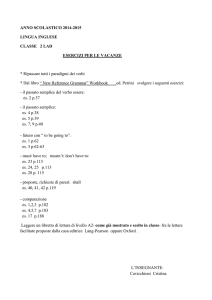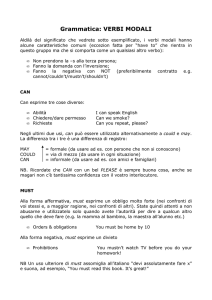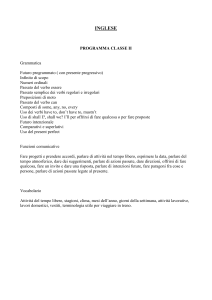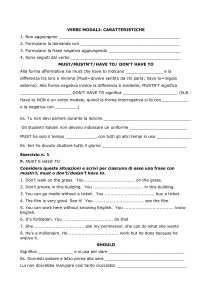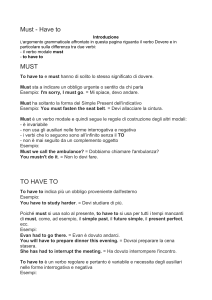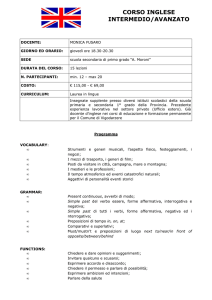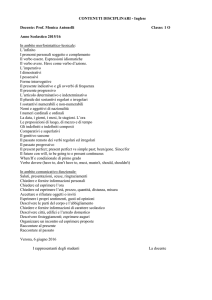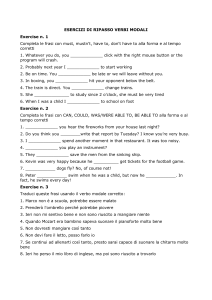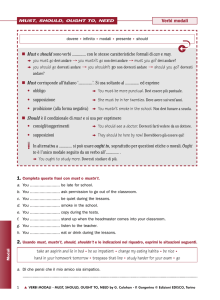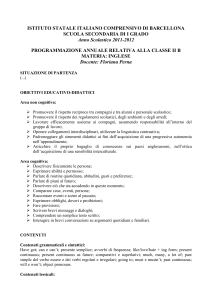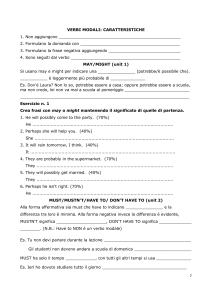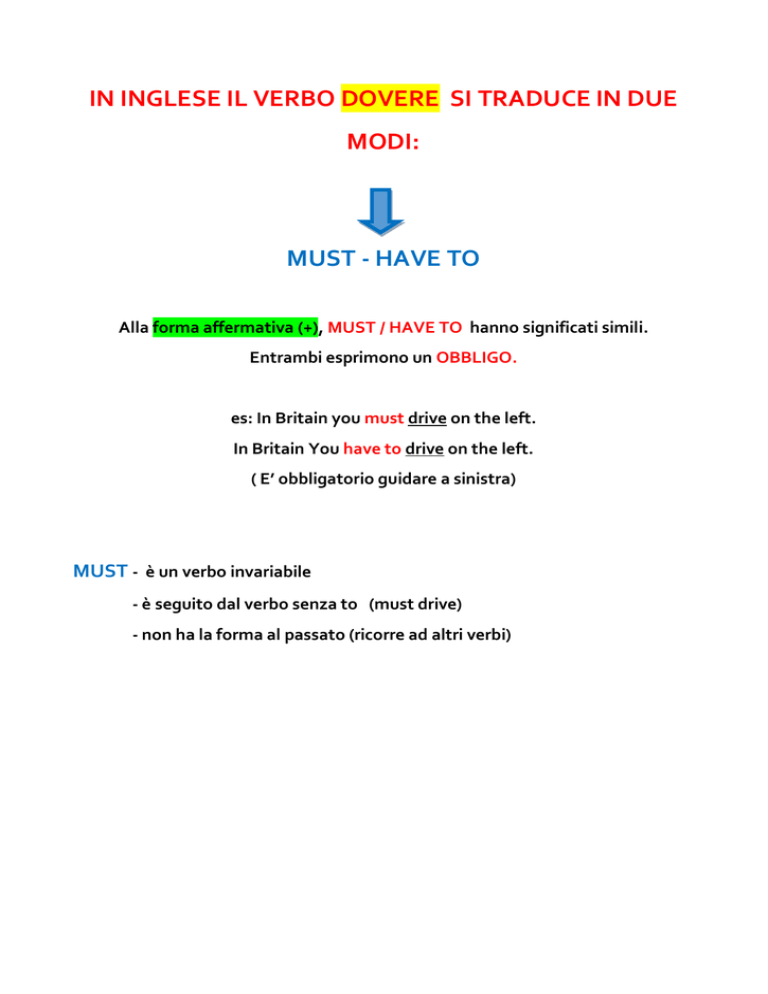
IN INGLESE IL VERBO DOVERE SI TRADUCE IN DUE
MODI:
MUST - HAVE TO
Alla forma affermativa (+), MUST / HAVE TO hanno significati simili.
Entrambi esprimono un OBBLIGO.
es: In Britain you must drive on the left.
In Britain You have to drive on the left.
( E’ obbligatorio guidare a sinistra)
MUST - è un verbo invariabile
- è seguito dal verbo senza to (must drive)
- non ha la forma al passato (ricorre ad altri verbi)
CONIUGHIAMOLO:
(+)
I must go
you must go
he/she/it must go
we must go
you must go
they must go
(+) significa: - 1 obbligo imposto a me stesso
es: I must remember to phone Jenny tomorrow
I must finish my history project.
(+) significa: - 2 obbligo verso qualcuno
es: You must come again soon (devi ritornare presto a casa)
He must tidy his bedroom (deve riordinare la sua camera)
(+) significa: - 3 necessità di fare qualcosa
es: We must buy some milk at the supermarket
I haven’t got any money. I must get a job.
(˗) I must not
I mustn’t go
you mustn’t go
he/she/it mustn’t go
we mustn’t go
you mustn’t go
they mustn’t go
(˗) Alla forma negative, il significato cambia.
(-) significa: - 1 divieto/proibizione
es: You mustn’t touch the animals! ( at the zoo)
You mustn’t be late
You mustn’t forget to buy your ticket
(?) Non c’è la forma interrogativa di must, perciò si utilizzeranno altre forme…


